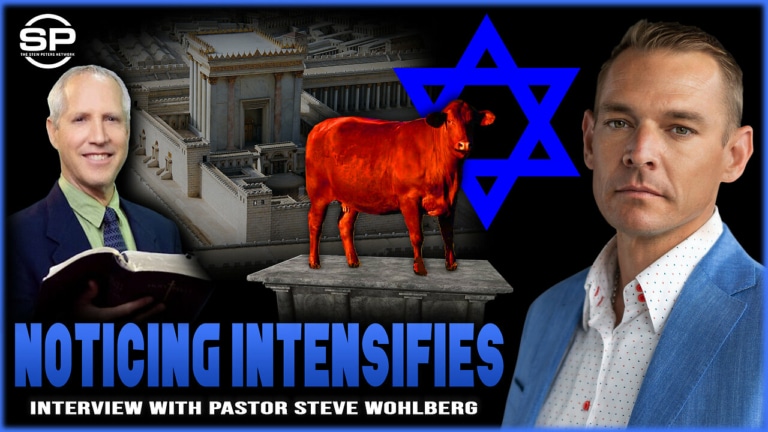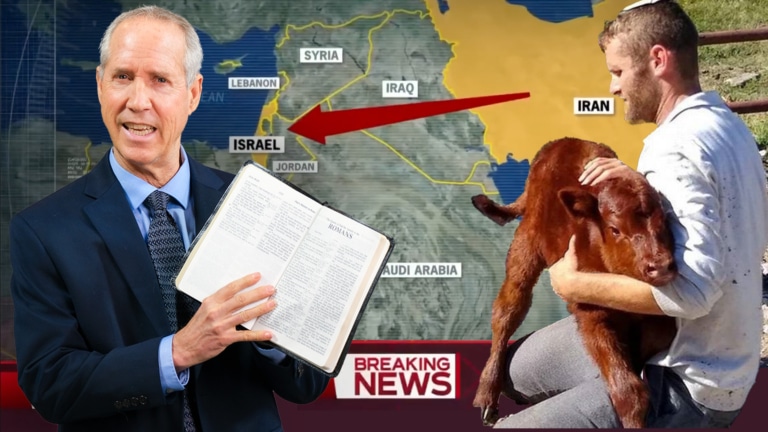As we saw in Part 1, the Bible predicts:
At that time Michael shall stand up,
the great prince who stands watch over
the sons of your people,
and there shall be a time of trouble,
such as never was since there was a nation…
(Daniel 12:1)
Notice carefully that when “Michael shall stand up” (in heaven) “there shall be a time of trouble” (on earth). In our last study we saw biblical evidence (compare Dan. 10:21; Jude 9; Rev 12:7; 1 Thess. 4:16) that “Michael” (which means “Who is like God”) is Jesus Christ Himself. It is Christ who descends with “the voice of the archangel” (1 Thess. 4:16) when He returns. As we also saw, the word “archangel” can literally be translated, “chief of the angels” (Enhanced Strong’s Lexicon). I want to clarify that Jesus Christ is not a created being (see John 1:1). Rather, He is God Almighty (see Rev. 1:8; 11), the Commander of heavenly hosts, who became a Man in His incarnation (see John 1:1-3, 14).
So what does it mean that He shall “stand up,” and how is this connected to the “time of trouble”? The Bible says that after His death and resurrection, Jesus ascended to be “seated at the right hand of the throne of the Majesty in the heavens” (Heb. 8:1). This doesn’t mean that our Savior has been sitting down for 2000 years. Rather, “seated” means seated in office as our “High Priest.” Paul continues by stating that Jesus is a “Minister of the sanctuary and of the true tabernacle which the Lord erected, and not man” (Heb. 8:2). In His sanctuary above, Jesus now ministers “His own blood” (Heb. 9:12) in our behalf. At this moment, He makes “intercession” (Heb. 7:25) for us in His heavenly temple.
Practically, this means that sinners may still be saved by an interceding Savior. The Holy Spirit still invites, woos, and pleads with fallen humans to confess and forsake their sins, and to trust in Christ. When we repent and believe, His royal blood is applied to our case in the courts above.
But will Christ plead forever? No, just like He didn’t plead forever in Noah’s day. Finally, after 120 years, Noah and his family entered the ark, the door closed, “and the Lord shut him in” (Gen. 7:16). That was it. People were either in, or out, saved or lost. Many years later Jesus warned, “As it was in the days of Noah, so shall it be also in the days of the Son of Man” (Matthew 24:37). Someday soon the door will shut again for the entire world, just like in Noah’s day.When that time finally arrives, Jesus will then proclaim from within His sanctuary, “He who is unjust, let him be unjust still; he who is filthy, let him be filthy still; he who is righteous, let him be righteous still; he who is holy, let him be holy still” (Rev. 22:11). When this announcement is made, every case is decided. Shortly thereafter, Christ will return to give to “every man according to his work” (verse 12). Thus the last chapter of Daniel (chapter 12) and the last chapter of Revelation (chapter 22) contain parallel truths. Both describe the closing of heaven’s door and the end of the world.
To summarize, when Michael “stands up,” this means that Jesus Christ will no longer be “seated” as “High Priest” in the temple above, and that the door of salvation will be officially closed. Then every human being on earth will be either “unjust” or “righteous,” “filthy” or “holy,” saved or doomed forever. Then the Holy Spirit will cease striving with rebellious humanity, because it’s too late.
When the Holy Spirit departs, Satan will then have full control of the finally impenitent and will plunge our lost world into one last, great, apocalyptic, final “time of trouble such as never was.” We must prepare for this right now by repenting of every sin, trusting fully in Jesus Christ, and by obeying God at all costs. May the Lord help us to be among the “holy” and “righteous” when mercy ceases.
To be continued…






